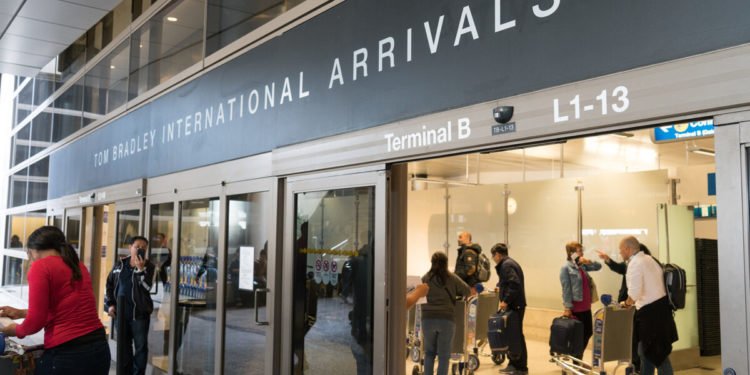World responses to viral outbreaks—like the U.S.’s to the coronavirus outbreak in recent weeks—are always a moving target. When it comes to contagious diseases, there are going to be new developments occurring every day. Of late, travelers in China have been evacuated, and people looking to travel to China are canceling their plans.
The rest of us—travelers throughout the U.S. and international travelers to/from other areas—so far have faced very little impact. But you may finally see some repercussions of the outbreak if you’re headed for a major U.S. airport that’s screening passengers. Here are 20 that were doing so as of January 29:
20 U.S. Airports Screening Passengers for the Coronavirus
- Anchorage Ted Stevens International
- Atlanta Hartsfield-Jackson International
- Boston Logan International
- Chicago O’Hare
- Dallas-Fort Worth International
- Detroit Metropolitan
- El Paso International
- Honolulu International
- Houston George Bush Intercontinental
- Los Angeles International
- Miami International
- Minneapolis-St. Paul International
- New York JFK
- Newark Liberty International
- Philadelphia International
- Puerto Rico’s San Juan Airport
- San Diego International
- San Francisco International
- Seattle-Tacoma International
- Washington Dulles International
How Airport Screenings for Viral Outbreaks Work
Travelers arriving on flights from China (both direct and connecting) are being screened medically at all of the U.S. gateway airports serving China. I have seen no reports about how much delay this imposes on arriving passengers, but the process appears to be brief so far. Airport medical screening is confined only to travelers arriving from China. If you’re traveling within the U.S. or entering from any other destination, it should be business as usual.
Existing flight reservations to China: If you have arranged a ticketed trip to China, most airlines are allowing you the option to reschedule or get a refund; hotel chains are typically doing the same. But check to be sure; if you arranged something through a travel agency, contact that agency, which might have policies that differ from those of the airline or hotel.
Travel insurance: If you purchased some before the outbreak, or have some through your credit card, it may or may not cover trip cancellation or interruption. Oddly, many trip-cancellation travel insurance policies do not include “outbreak of a virus at destination” as a covered reason. And, as of January 29, the State Department has issued a Level 4 (do not travel) warning only for the Hubei area of China. The rest of the country is merely at Level 3 (reconsider travel) which may not be enough to trigger some policies that are based on State Department warnings.
Future bookings: Obviously, if you’re considering a trip to China, you’re probably better off postponing it until the virus is fully contained. But if you must go, experts all recommend frequent hand washing and avoiding densely populated areas. Other less scientifically proven recommendations for avoiding the virus include wearing an appropriate mask (masks rated as N95, filtering out 95 percent of PM2.5 particles, are considered the bare minimum) and selecting a window seat on your flight, which is more isolated from germs than other seats.
The long-term outlook for the virus is uncertain. What is known is that the current strain, originating in China, is serious. With more than 6,000 cases and more than 100 deaths in China, the outbreak has surpassed the SARS outbreak that occurred in 2003.
Symptoms are about the same as those for an ordinary cold, including stuffy nose, cough, and sore throat, and can lead to pneumonia. That means—at least at first—you won’t know if you have the serious virus or something less worrisome, and it usually takes around 10 days after infection for symptoms to develop. For that reason, many health experts are saying that airport fever screening could be ineffective. Plus, one study of airports’ temperature scanners found that they’re unreliable.
So far, nobody has developed a vaccine, although several government agencies, universities, and pharma companies have said they are working on one.
Readers: Are you concerned about the effectiveness of airport screenings? Should officials continue to administer them? Comment below.
More from SmarterTravel:
Consumer advocate Ed Perkins has been writing about travel for more than three decades. The founding editor of the Consumer Reports Travel Letter, he continues to inform travelers and fight consumer abuse every day at SmarterTravel.























































